
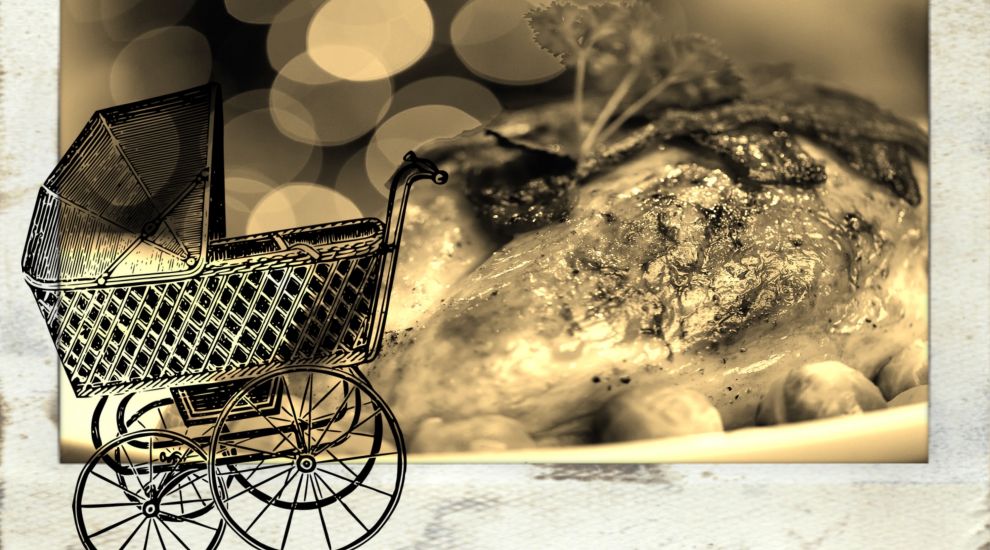
A baby boy and a pram were the key elements in one family's plan to conceal an illicit Christmas turkey from the Germans during the Occupation.
According to Gerald Harrison, who grew up during the Occupation, the saga is just one example of how some of the hardest of times could still lead to some "hilarious" antics.
His story is just one of many that has been shared in a new book of 74 childhood memories from those who grew up in the era collated by Therese Tabb called 'Occupation Memories'. She said that the book was a tribute to “every islander who endured the German Occupation”.
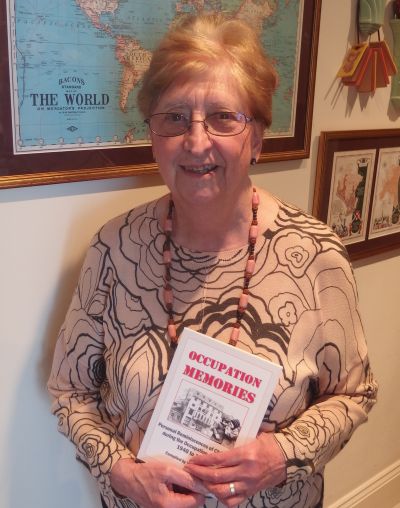
Pictured: Therese Tabb and her book, 'Occupation Memories'.
Each week, Express will be sharing a story from the book.
In this week's instalment, a look at what literally living next door to the enemy felt like...
"At the beginning of the Occupation some things continued more or less as normal. For all the Harrison family one such was Sunday lunch at Rocqueberg on La Grande Route de la Côte in St Clement, the home of my grandparents Arthur and Annie Harrison (née Guiton), who were the owners of The Evening Post as it was then known.
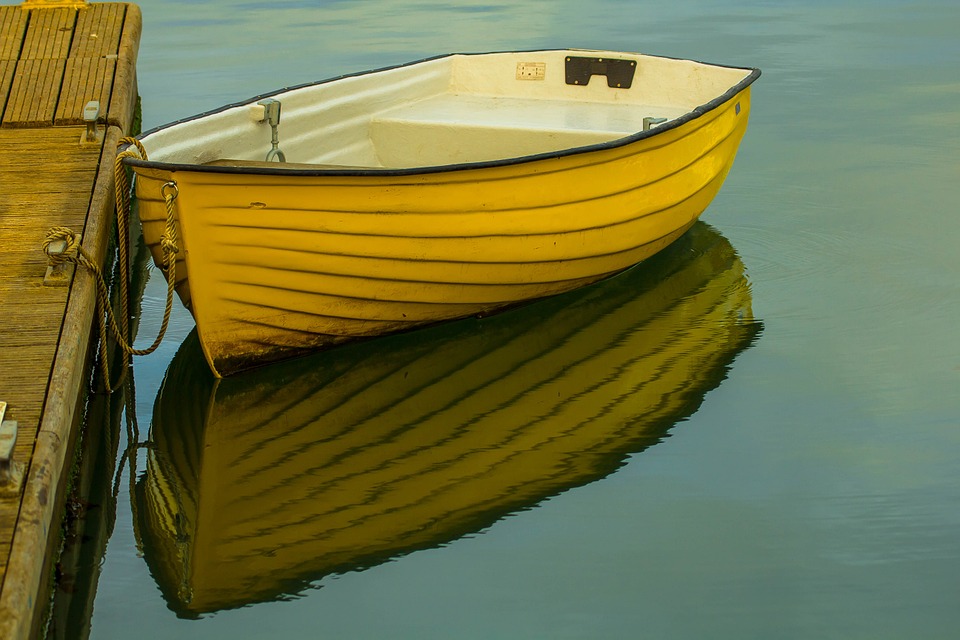
Pictured: "One morning Dad looked out of the bedroom window and saw an empty dinghy floating into the bay."
However, before lunch it was incumbent on all family members to attend chapel at Aquila Road as the Harrisons were very strong Methodists, far more so than our current generation.
During one particular Sunday lunch two German officers were seen walking around the grounds and the following day my grandparents were given 24 hours’ notice to quit.
Thus, the Germans moved in with a garrison and built gun and searchlight emplacements, a maze of tunnels and everywhere barbed wire. For five years therefore, our house, La Garenne, a little further along the road, was separated from the enemy by just a field.
The proximity of our German neighbours would have been more of an issue to our parents than to us children, but we did have our moments.
One morning Dad looked out of the bedroom window and saw an empty dinghy floating into the bay. He went down to the water, swam out and pulled the boat onto the beach, whereupon several Germans appeared and heaved it up the bank and into the field next door leaving it just outside the barbed wire.
When Dad came home, he was astonished to find the dinghy sitting on our side of the field by our gate. What had happened was that my elder brother, Bryan, and I had spent a long day dragging the boat across the field without any reaction from the Germans.
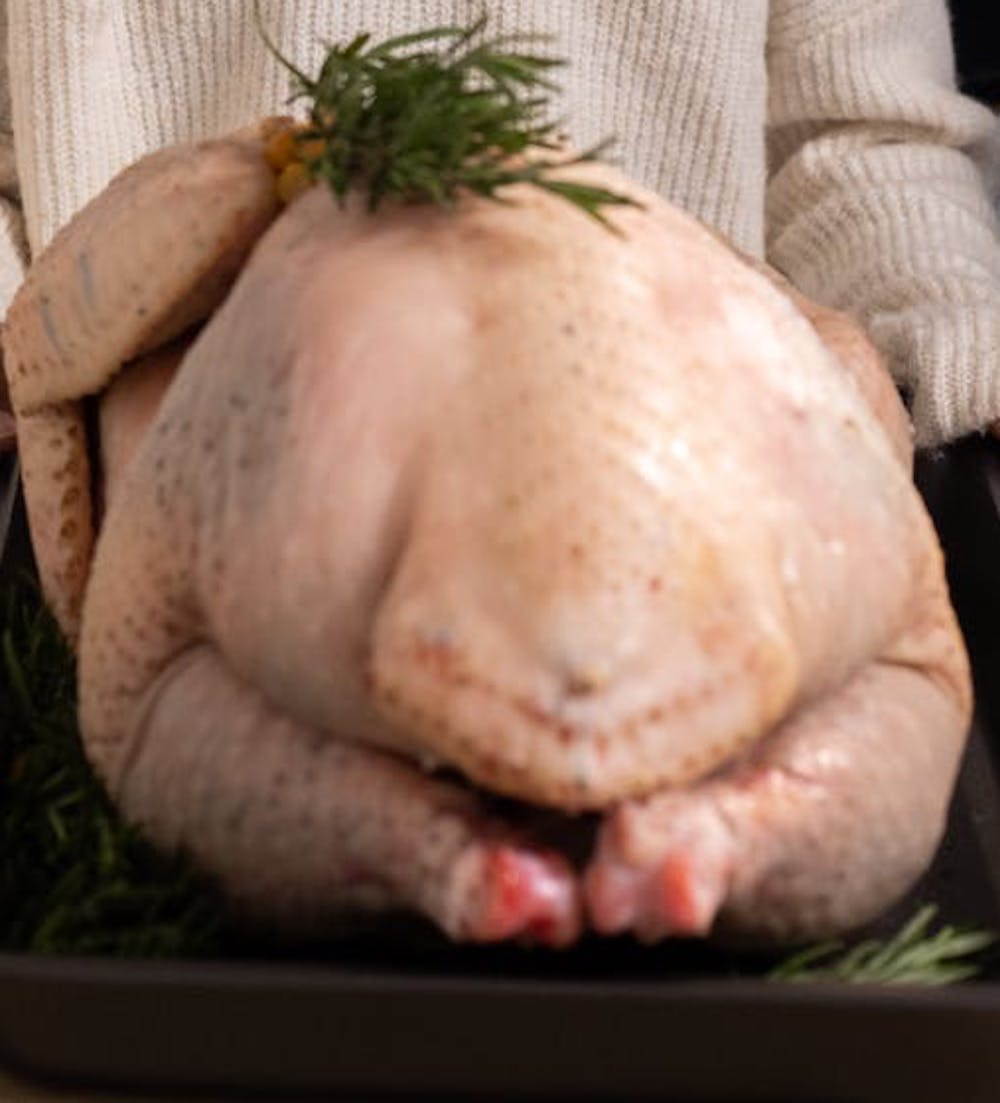
Pictured: "Our Uncle Jim had procured an illicit turkey for Christmas."
Dad quickly organised help from some friends and the dinghy was spirited away to a nearby farm where it remained until the Liberation. The boat carried no markings of any sort and despite adverts in the EP and enquiries among the boating community, it was never claimed. After the war it became a valued part of our teenage years for fishing, a variety of activities and the occasional rescue of hapless tourist stranded by the rising tide.
At Christmas time it was commonplace for the Germans to forcibly enter private houses looking for black market goods. On this occasion as they arrived at La Garenne, my mother had the presence of mind to tell Bryan and me to go to our Aunty Beryl Scriven on the pretence of returning a jug so that we could tell her that the Germans were coming since she knew that Beryl’s husband, our Uncle Jim, had procured an illicit turkey for Christmas.
Out came a pram, into it went the turkey and on top of it was our baby cousin Peter suitably wrapped up. The pram was wheeled up and down the road by little innocents until the Germans were safely on their way back to their quarters.
Our parents were friendly with Roderick and Bubbles Dobson. Roderick was a great naturalist who wrote 'The Birds of the Channel Islands', the bible for all local ornithologists. Incidentally, the oldest Dobson daughter is my wife, Anne.
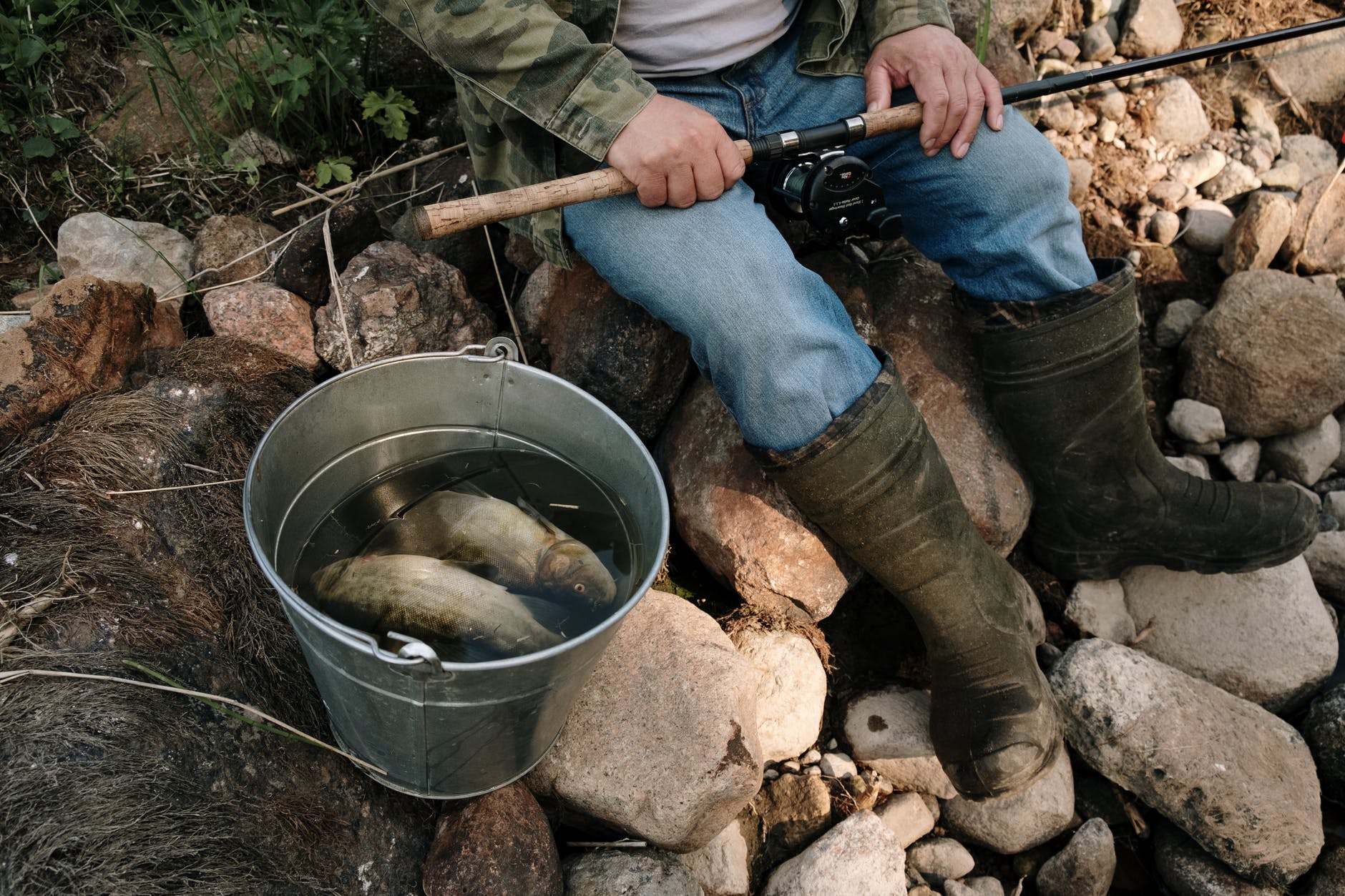
Pictured: Fishing was "tolerated by the Germans since there was little chance of anyone escaping the Island by wading or swimming."
One day Dad and Roderick cycled from La Garenne to La Rocque harbour to go low water fishing near Seymour Tower. Such activities were tolerated by the Germans since there was little chance of anyone escaping the Island by wading or swimming.
They were ‘spiking’, a method of fishing which involved a pole with a spike attached used to spear flatfish. Having had no luck in the shallows, Roderick decided to strip off entirely and try his luck in deeper water.
I like to joke that, watching these antics, the Germans decided to have some fun by having some target practice with one of the big guns at Rocqueberg! Dad and Roderick did not find it all funny and ran for cover.
Unfortunately, by this time Roderick was some distance from his clothes and discretion being the better part of valour just kept running. Dad had to lend Roderick his shirt so they could both ride back to La Garenne with some semblance of dignity.
They might not have found the event funny, but their friends found it hilarious."
Comments
Comments on this story express the views of the commentator only, not Bailiwick Publishing. We are unable to guarantee the accuracy of any of those comments.